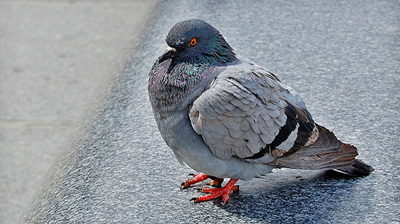
So if you haven’t heard already, Google has updated its Search Algorithm. Its name is Pigeon. Why Pigeon? Because this particular Google update is a local search update. Pigeons tend to fly home. And so the name pigeon was chosen by the trend setters for that reason. If you don’t get it, don’t worry. The name of the update isn’t all that important. The thing that is important, the better question to ask is: “What does this mean for my business’s SERP rankings? How does Google Pigeon change the game of SEO, if at all?”
About the Update. What We Know So Far.
Pigeon puts far more stock into location, meaning that search results tend to display more of what is nearest to where the searcher is located at the time of the search. This will be visible in the Google Web & Google Maps search results. For instance, if you type in Web Design, and you are currently in Houston at the time of your search, Networtech will be displayed near the top of the page, because it is a Houston Web Design Firm. If you were in, say, Seattle, Networtech will no longer show up as part of the local search results. Instead, companies like UrbanInfluence and Seattle Web Group will be displayed.
It’s difficult to go into the specifics of how precisely Pigeon works. For now, we can only be satisfied with knowing what it does, and how it affects our businesses. Google tries to stay very hush-hush about the actual specifics of the Google Algorithm. They haven’t commented on what percent of queries will be affected by Pigeon, and they also haven’t given us much information on whether certain web spam algorithms were brought into effect.
For now, we are still trying to learn more about how Pigeon has changed the SEO game. There is plenty to explore, and only a limited amount of time. Stay tuned. We will write plenty more about the newest search algorithm once we dig deeper into what it does and how its changes impact online marketing and search engine optimization.